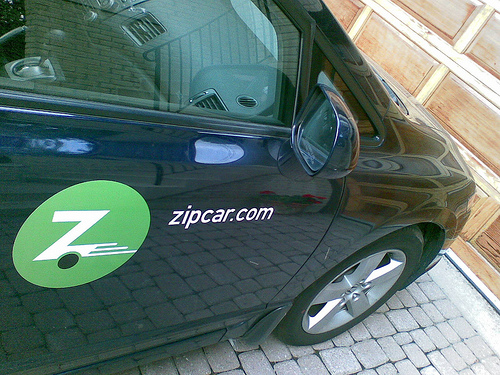Zipcar files IPO: A look at the IT risks

Zipcar has filed for what is likely to be a high-profile initial public offering and the company has detailed a few significant information technology risks.
Some of these risks are boilerplate, but front and center is a plan to integrate the IT systems of Streetcar, a U.K. rival that Zipcar acquired.

Before that expansion gets underway, Zipcar has some key IT hurdles. Zipcar laid out the IT integration risks with Streetcar in its SEC filing:
In connection with the acquisition, we expect to convert Streetcar members to the Zipcar system and convert the Streetcar systems to those of Zipcar. We may not be successful in converting Streetcar members to Zipcar. We may also decide to provide free driving credit or other incentives to encourage Streetcar members to convert to Zipcar. If a significant number of Streetcar members do not convert, our financial results will be adversely affected.
We will also need to convert the Streetcar systems—in-vehicle systems, administrative systems, and vehicle branding—to that of Zipcar. Such conversions may not be successful, or if successful, may take considerably longer than anticipated or may cause us to incur significant unexpected costs.
During the integration of Streetcar with our business, we will continue to use Streetcar’s in-vehicle technology. We do not have experience operating, maintaining or trouble-shooting this technology. If Streetcar’s in-vehicle technology becomes unreliable, we may not have the expertise or the resource to correct errors or malfunctions within the in-vehicle system. Such failure of the in-vehicle system would inconvenience members, which in turn may harm our ability to retain Streetcar members.
For larger companies these acquisitions may be easier to integrate. Zipcar said that Streetcar's operations in London are larger than its own. Meanwhile, Zipcar has limited experience with project management across multiple time zones.
Zipcar also added that the Streetcar IT integration could "complicate our information security efforts."
Other tidbits worth noting about Zipcar's IT systems:
- The company uses third-party data center facilities.
- A security breach could bring material harm to the company's reputation.
- Fraudulent transactions are a worry. Zipcar said "we do not currently carry insurance against the risk of fraudulent credit card transactions. A failure to adequately control fraudulent credit card transactions would harm our business and results of operations."
- Zipcar's proprietary fleet management software, dubbed FastFleet, is licensed under a software as a service arrangement. The primary customers are local, state and federal government agencies.